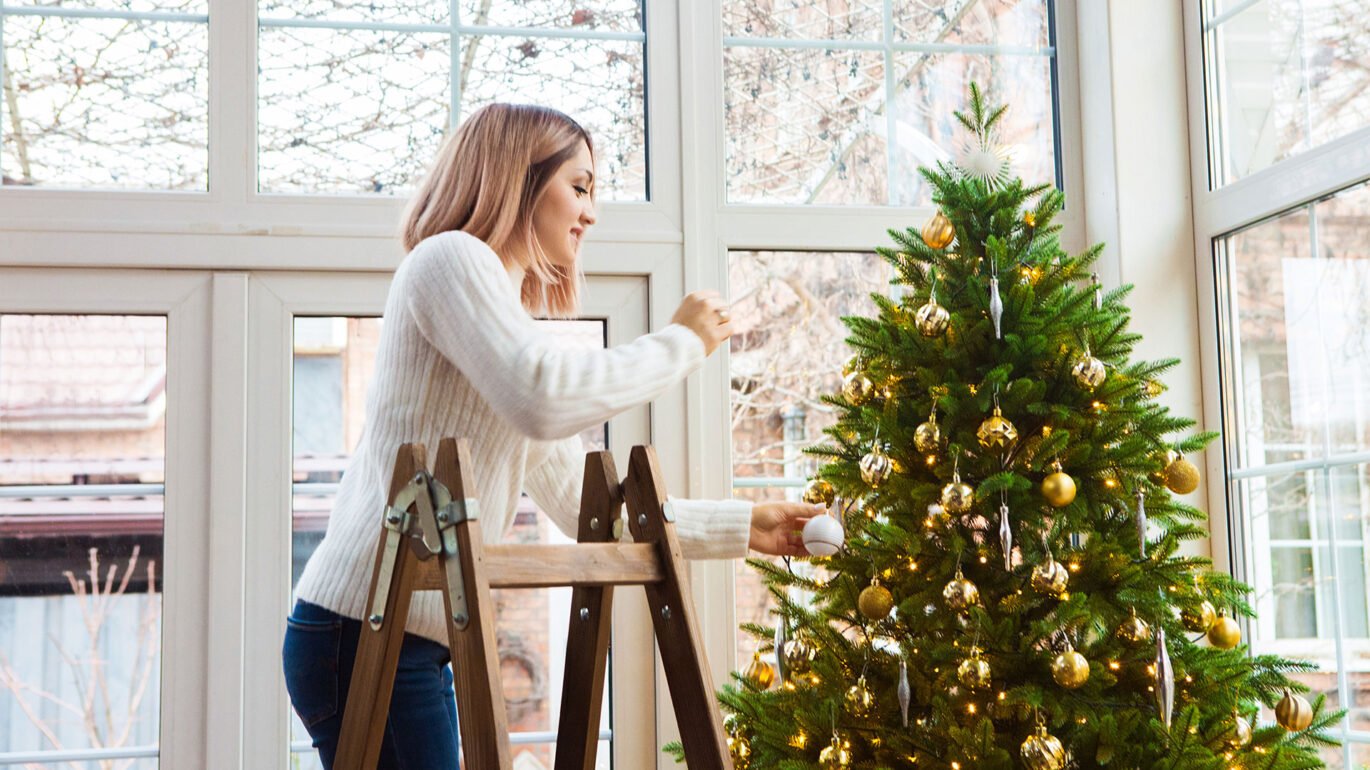Decking the halls of your workplace is a great way to lift spirits and soothe pandemic-weary souls. It’s good for everyone’s emotional and mental health.
For many workers, lights, garlands, and trees can evoke fond memories, provide a sense of anticipation and distract from life stresses. For others, decorations related to cultural celebrations during the holiday season, such as Hanukkah and Diwali, can have the same effect. Using decorations that match the diverse makeup of your workforce ensures everyone enjoys a holiday boost.
But before you can reap these psychological benefits, you need to make sure that your decorations don’t increase the risks of hazards, like fires, slips, trips and falls, electrical shock, musculoskeletal disorders (MSDs) and more.
Follow these 12 tips for eliminating and controlling hazards that could hamper your workplace celebrations.
Before you start
- Inspect all decorations, electrical cords, smoke detectors, and fire safety equipment for damage. Check light strings for broken or cracked sockets, frayed or bare wires, or loose connections. Replace damaged or broken items.
- Verify decorations and artificial trees are flame-resistant or non-combustible.
- Prepare the space. If you’re building inventory for holiday shoppers at the same time, figure out how and where to store everything safely. Keep aisles and emergency exits clear.
- Schedule the decorating for a time when the space is comparatively free of traffic, especially relating to customers.
- Use decorations that are safe for employees and customers. Holiday plants such as mistletoe, holly berries and some ivies are poisonous.
- If you use an outside company to install decorations, make sure they comply with all regulatory requirements under the Occupational Health and Safety Act.
Putting up decorations
- Place live trees at least three feet away from heat sources. Water daily. If the tree dries out, remove it. It’s a fire hazard.
- Don’t block sprinklers or fire alarms when hanging decorations. Check expiry dates on fire extinguishers to ensure they are up to date and keep them easily accessible.
- Don’t block aisles, walkways or exits with decorations, displays, banners, signage, etc.; secure electrical cords and cables to prevent slip, trip and fall hazards.
- Check ladders for damage before using and follow ladder safety protocols to prevent falls and MSDs. (See How WSPS can help at the end of the article for resources). If your decorators are working three metres or more above the ground, use proper fall protection devices and equipment.
- Use the correct electrical cords and cables for the job. Don’t overburden cords or outlets. Turn off and unplug all electric decorations when the workplace is closed.
- Follow manufacturers’ instructions when installing and using lights. Never use staples or nails to secure light strands or extension and power cords. If decorating outdoors, use only lights rated for exterior use.
How WSPS can help
Consulting
Contact a consultant for help assessing hazards and identifying and implementing solutions.
Training
- Awareness Session – Slips, Trips, Falls Awareness (1.5 – 2 hours)
- Working at Heights (1 hour, eCourse)
- Fire Safety: The Basics (1 hour, eCourse)
- Electrical Hazards (1 hour, eCourse)
- Preventing Falls from Slips and Trips (1 hour, eCourse)
Other resources
- Ladder Safety (download)
- Slips, Trips and Falls (article)
- Fire Prevention (article)
- Electrical Hazards (article)



